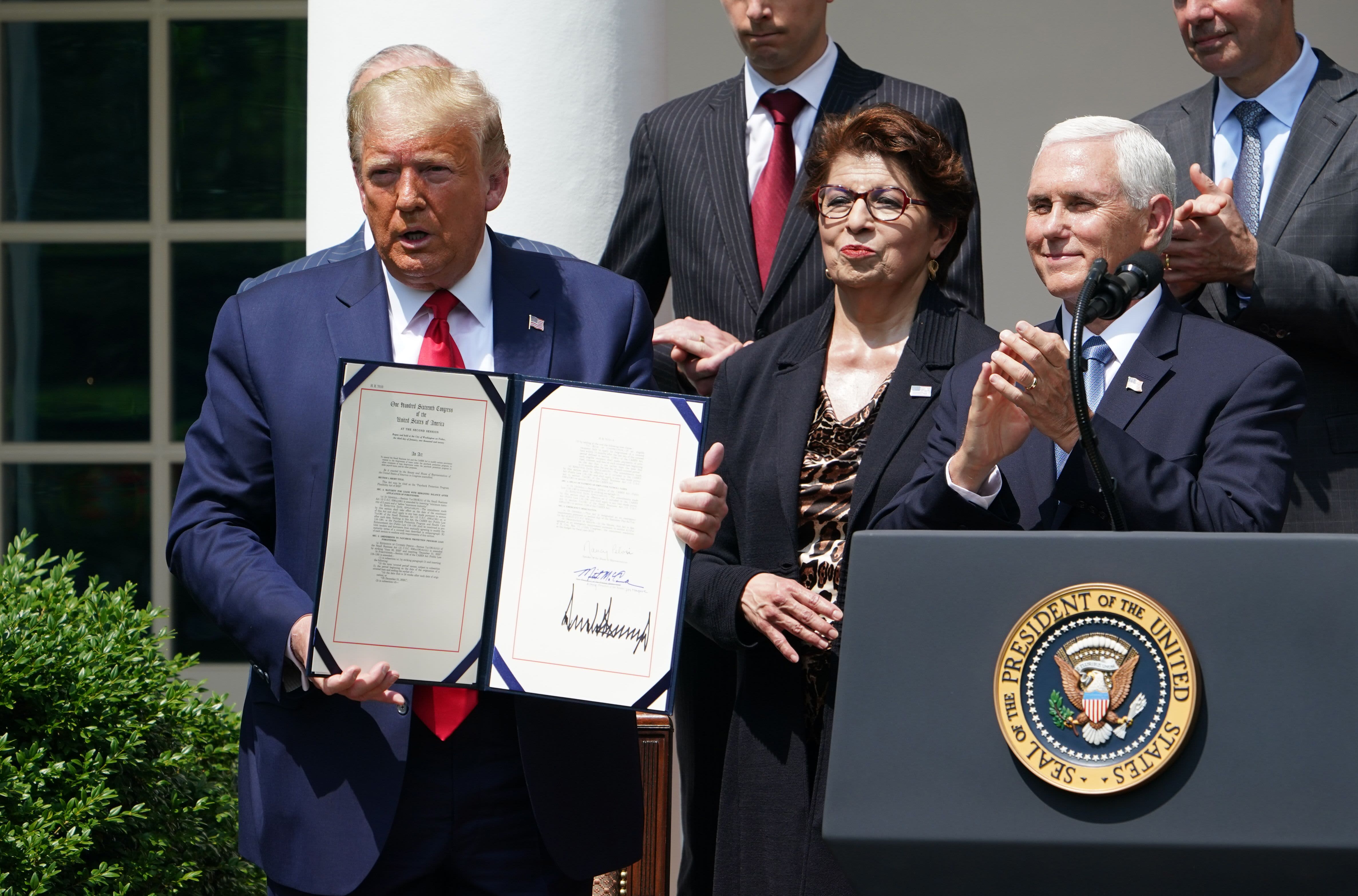US President Donald Trump shows his signature on the Paycheck Protection Program Flexibility Act of 2020 as he holds a press conference on the economy, in the Rose Garden of the White House in Washington, DC, on June 5, 2020.
Mandel Ngan | AFP | Getty Images
President Donald Trump signed a bill Friday to give recipients of government small business loans during the coronavirus more flexibility in how they spend the money.
The Senate passed the legislation by voice vote Wednesday, following nearly unanimous House approval last week. The measure eases the conditions small businesses have to meet in order to get the Paycheck Protection Program loans forgiven, as some struggled to meet key thresholds during the pandemic.
Trump said the legislation “will especially help restaurants, hotels and other businesses that have been very hard hit by the virus.”
The bill:
- Cuts the share of aid recipients need to use on payroll to 60% from 75%
- Allows businesses to use the money for six months instead of two months
- Extends a June 30 deadline for companies to rehire employees
- Gives loan recipients a longer period of time to repay the loans
- Lets companies receiving loan forgiveness defer payroll taxes
Though the bill passed by voice vote this week, it did not get through the Senate before Sen. Ron Johnson, R-Wisc., got assurances about future changes. He wants the PPP to expire earlier than originally planned.
Congress first put $350 billion into the small business loan program. After the government quickly doled out that money during a chaotic rollout, lawmakers put another $310 billion into the PPP — with $60 billion going directly to small lenders.
The president spoke shortly after the Bureau of Labor Statistics reported that the economy added 2.5 million jobs in May, blowing away expectations of millions more jobs lost due to the pandemic.
The numbers showed, however, that many of the jobs added were from temporary furloughs and layoffs. The unemployment rate is 13.3%, and the jobless rates for minority groups remain high.
— CNBC’s Mike Calia contributed to this report
This is breaking news. Please check back for updates.
